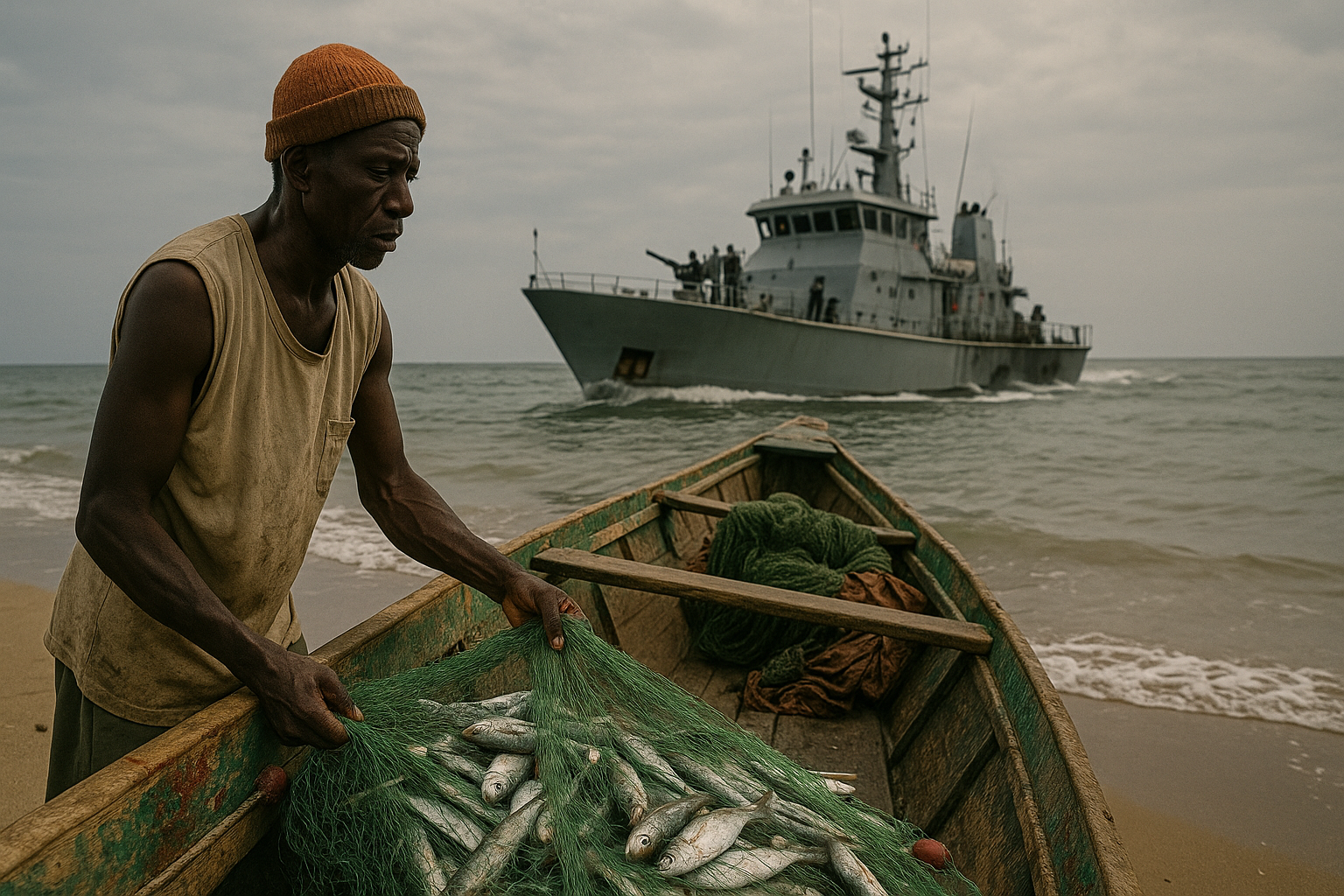Weak Enforcement in Africa’s Fishing Zones Threatens Artisanal Livelihoods, Study Finds
A World Bank study finds that while most African nations fail to keep industrial vessels out of nearshore exclusion zones, six countries—including Nigeria, Ghana, and Mauritania—successfully enforce the rules. The research warns that without stronger enforcement, artisanal livelihoods, food security, and fish stocks will remain at risk.

The World Bank’s Development Research Group, led by economists Aishwarya Agarwal and Gabriel Englander, has released a landmark study assessing whether African coastal nations are succeeding in shielding artisanal fishers from industrial competition. The paper, published in September 2025 as part of the Policy Research Working Paper Series, takes a hard look at Inshore Exclusion Zones (IEZs), legal boundaries drawn close to the shore to keep large vessels out of the most productive waters. These zones were designed to give artisanal fishers the space and security they need to sustain their livelihoods. Yet, questions have long loomed about whether the rules are respected at sea. For the first time, the study uses newly released satellite radar data from 2024, which allows an unbiased tracking of vessel movements, to deliver a rigorous causal evaluation of how effective these zones really are.
Six Nations Hold the Line, Fourteen Struggle
The findings show a continent divided. Of the 20 African coastal countries studied, only six, Nigeria, Sierra Leone, Liberia, Mauritania, Ghana, and Guinea, were found to be successfully deterring industrial vessels. In these nations, the radar data revealed stark discontinuities: vessels stopped or veered away at the IEZ boundary, proof that the law was making an impact. Elsewhere, however, the data told a different story. In fourteen countries, industrial fleets appeared to treat the legal lines as mere suggestions, slipping into exclusion zones and continuing to harvest where they were not supposed to. This undercuts the very purpose of IEZs: protecting artisanal incomes, securing food for coastal populations, and conserving fragile fish stocks.
Innovative Tools Reveal the Gaps
The research team applied three sophisticated methods to reach these conclusions. First, a regression discontinuity design measured whether vessel activity changed abruptly at the borders of IEZs. This provided a clear test of whether rules were truly shaping behavior. Next, bunching estimators created counterfactual vessel distributions, showing how fleets might behave in the absence of regulation. This helped isolate cases where vessels clustered just outside boundaries, a phenomenon the authors call “spillover pressure.” Finally, the study employed calibrated models to assess extensive-margin effects, whether entire zones were being spared from industrial fishing, not just nudged slightly offshore. Together, these methods built a comprehensive picture, revealing that while some states enforce their rules effectively, many do not.
Enforcement Capacity Makes the Difference
The sharp divide between successful and unsuccessful countries points to a deeper reality: enforcement capacity. Nations such as Nigeria and Ghana have invested in stronger coast guards, integrated satellite monitoring into patrol operations, and, in some cases, drawn on international partnerships to bolster their capabilities. This combination has created genuine deterrence, making industrial vessels think twice before crossing into forbidden waters. By contrast, countries with weaker institutions face chronic challenges. Limited budgets, corruption, and inadequate surveillance capacity mean that fleets often calculate that the profits of illegal fishing outweigh the risks of punishment. In such settings, exclusion zones exist on paper but remain porous in practice, leaving artisanal fishers to compete with steel giants that sweep the seas with industrial efficiency.
A Human and Ecological Imperative
Beyond the technical findings, the study frames the stakes in human terms. Millions of Africans depend on artisanal fishing not only as their main source of income but also as their primary source of protein. When industrial trawlers intrude into exclusion zones, they reduce the catch available to local communities, drive down market prices, and accelerate ecological depletion. The consequences ripple far beyond the shoreline, deepening food insecurity, fueling unemployment, and sowing the seeds of social tension. For policymakers, the message is stark: IEZs remain a critical tool, but without real enforcement, they are little more than symbolic gestures. The authors urge governments to invest in better monitoring, strengthen legal penalties, and involve communities directly in reporting and oversight. They also warn that vigilance must be ongoing, since industrial fleets are quick to adapt to new enforcement strategies.
The paper closes on a note of both urgency and possibility. Without effective deterrence, Africa’s coastal fisheries risk sliding further into crisis, with industrial fleets eroding a resource base vital to millions. Yet where enforcement is strong, the rewards are tangible: sustainable stocks, resilient coastal communities, and a measure of economic justice for those who depend most on the sea. Ultimately, the study argues that the battle for Africa’s fisheries is not just about drawing legal lines but about ensuring those lines hold firm in practice. Enforcement, it concludes, is not a bureaucratic detail but the dividing line between laws that protect and laws that merely decorate the books.
- FIRST PUBLISHED IN:
- Devdiscourse
ALSO READ
World Bank: Thailand Can Turn Climate Risks into Green Growth Opportunities
Sarawak Partners with World Bank to Reform SOEs and Strengthen Governance
World Bank Hails Malaysia’s GovTech Push as Key to High-Income Future
Uganda’s Economy Expands, World Bank Calls for Stronger Domestic Revenues
World Bank Boosts Costa Rica's Fiscal Efficiency










